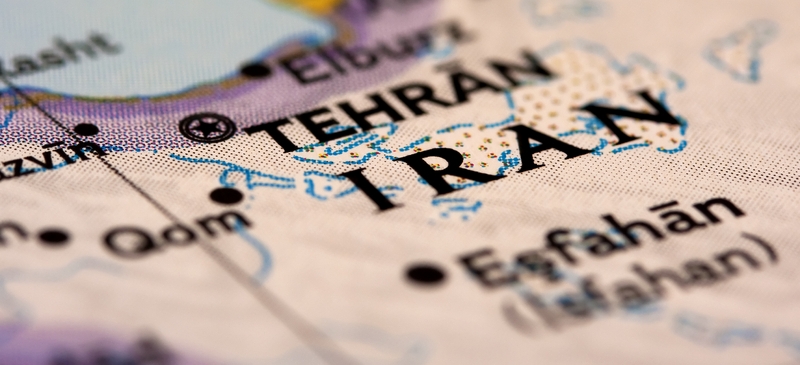
Iran, elections, and nuclear weapons
by Tomas Valasek
What the future holds for Iran's theocratic regime is hard to read. True, the government has ensured its own survival by suppressing last month's protests there with brutal force. President Mahmoud Ahmadinejad will remain in power despite a contested election. But the authority of the regime has suffered. The president has lost legitimacy in the eyes of millions of Iranians. The country's supreme leader, Ayatollah Ali Khamenei, who urged force against the protestors, has lost much of his popularity. The events of June 2009 could turn out to be the beginning of a deeper challenge to the Islamic republic: Iran observers point out that the country's 1979 revolution was preceded by a long build up of low-level agitation.
What is clear is that the violence around the presidential election bodes ill for western diplomacy to end Iran's nuclear ambitions, in at least two ways. First, Barack Obama will be under pressure to rethink the offer of 'engagement grounded in mutual respect', which he extended to the government in Iran in April 2009. On the other hand, the US will now find it easier to convince the Europeans to toughen the sanctions regime on Iran, thanks to Tehran's heavy-handiness.
Iran's nuclear programme is run directly by the country's supreme leader, not the president. The recent political turmoil will have had little effect on it. Even if the challenger, Mir Hossein Mousavi had won the presidency, Iran would have almost certainly continued to enrich uranium. Mousavi said during the campaign that he would not abandon "Iran's right to nuclear technology". Some Iran watchers have speculated that Mousavi would build enrichment facilities but not nuclear weapons, lest he put Iran in even deeper isolation. In reality, the president's views have little bearing on the nature of the nuclear project.
The West has long been worried that Iran is building a nuclear bomb, or at least acquiring all the necessary ingredients. However the more immediate concern now is the prospect of an Israeli military strike on Iran. US officials say they fear that Israel may try to destroy Iran's nuclear facilities this autumn, before Russia delivers a batch of modern anti-aircraft missiles recently purchased by the Iranian regime.
To prevent Iran from acquiring nuclear weapons – and to keep Israel from attacking – Barack Obama launched a new diplomatic push in April 2009. He has promised to join the European-led talks with the government in Tehran. US negotiators are rumoured to be considering dropping a key western condition for the talks, namely that Iran shut down its enrichment programme before the negotiations start. Obama also recorded a video statement to the Iranian people, in which he has offered a partnership between the US and Iran. The idea was to win the Iranian regime's goodwill by showing it the respect it craves, and to spur the Iranians into pressuring the leadership to pursue a less confrontational line with the US.
The second pillar of the US strategy has worked very well. While most Iranians support the nuclear programme, many of the young ones are increasingly frustrated with the country's pariah status. Mir Hossein Mousavi, surged ahead in the polls after he accused president Ahmadinejad of leading Iran into the 'indignity' of international isolation.
But Mousavi failed to win – or was prevented from winning – and the post-election protests have undermined the overall strategy. Iran cannot negotiate because the government is 'too busy locking people up', said one EU official working on the Iran dossier. If Ahmadinejad and Khamenei do fully consolidate power, this will create another headache for the West: how can Barack Obama speak to a regime which has likely rigged elections and brutally suppressed democratic protests? Obama is already under fire for being "soft" and "naive" regarding Iran. Admiral Michael Mullen, the chairman of the US Joint Chiefs of Staff, recently urged him to take a harsher line, noting that Iran's nuclear programme was progressing whatever the domestic situation there. Even if Obama starts talks with Tehran, he may feel compelled to satisfy Mullen, and others, by employing tougher rethoric. This would likely cause the talks to collapse prematurely.
If, as is likely, engagement does not generate a generous response from Tehran, the US will want to tighten existing sanctions on Iran. Some governments like the German and Italian ones, have been known to be sceptical about the need for further sanctions; the Italian foreign minister published an article in early June calling for the West to be nice to Iran. But the violence in Tehran has made the doubters more inclined to penalise the Iranian government, EU officials say.
However, fresh UN sanctions may be blocked by Russia, and possibly China. Both are members of the UN Security Council and oppose a harsher line on Iran. If the US and the EU apply unilateral sanctions, these will be less effective. Meanwhile, Israel may decide to attack, or Iran may race to acquire a full nuclear weapon. So the furore over Iran's presidential election – by throwing up new obstacles to diplomacy – has made the job of resolving tensions over its nuclear programme harder. That may prove the deadliest legacy of the events of the last few weeks.
Tomas Valasek is director of foreign policy and defence at the Centre for European Reform.
